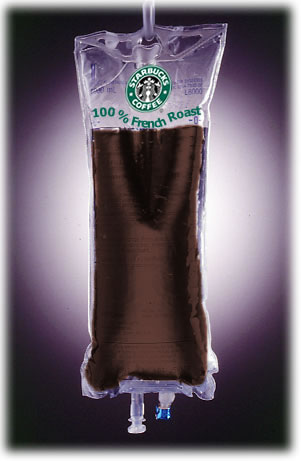While most of us are searching for fancy supplements to get to their goals, you probably have something in your kitchen that will help you get a long way. Whether your goal is increasing performance, losing weight, or improving health, Caffeine will help you with that.
What is caffeine?
Caffeine is a xanthine alkaloid, when extracted its a bitter white substance, that's the reason coffee is bitter, it is found in beans, fruit and leaves of many plants.
Many things we consume on our daily lives actually contain caffeine, such as coffee, teas, chocolate, chocolate based products, and energy drinks. Caffeine may not be listed on the label of a supplement or food however it may be listed in another name such as: chocolate, cocoa, guarana berries, Camilla sinensis or kola nut.
There is about 19000 studies examining the benefits and downsides of caffeine in recent literature, most of these studies shows the beneficial side of caffeine, except for a certain groups that maybe have complication with it, such group like pregnant women and people with heart diseases.
- Benefits of Caffeine:
- The most significant use for caffeine is for its ability to support mental alertness and ward off mental fatigue. This is helpful for training, since you can train with more focus and clearance in your mind; it’s also helpful in studying, working and anything that need concentrating.
- Caffeine is used to fight physical fatigue of training, it also happens to promote glycogen resynthesis (muscles carbohydrate storage). research found that caffeine is a very effective ergogenic aid (athletes performance improvement substance), for short term intense exercise (about 5min) at maximal output, but its effect as show better in prolonged (over 2 hours) endurance exercise.
- Studies also have proven that caffeine has positive effects on the respiratory system. According to the magazine, Marie Claire, caffeine has been shown to help reduce asthma symptoms, "because caffeine is a chemical cousin of the prescription asthma drug theophylline, which widens the airways leading to the lungs" (March 03 p. 261).this means it goes along way I’m improving aerobics exercises, since it depends greatly on the respiratory system.
- Caffeine is a great tool for weight loss purposes, it wasn’t added for the ECA stack for nothing, its help with the fat loss to a great deal in more than one way. It supports lipolysis temporarily, has temporarily metabolism, theromgenesis boosting effect, which leads to more calories burning while training.

- Non athletic benefits:
- caffeine helps as a remedy for headaches, it is added to many headaches medication, as it have a very positive effect on the blood vessels of the brain, when these vessels swollen, its causes headaches, and caffeine constrict these blood vessels, which will result in reduce or removing of the headaches pain. But when should be careful, as using too much caffeine may actually cause headaches in some.
- Caffeine helps reduce the risk of type 2 diabetes: a study in Ann intern med (2004; 140: 1-8) (p.137) was conducted on 126000 men and women, the findings of this study showed that people who take less caffeine, or drink less caffeinated drinks are more likely to develop type 2 diabetes.
- Caffeine helps prevent or stop the spreading of skin cancer: An American research conducted on mice with skin tumors, the caffeine was rubbed on the skin of these mice, and researchers found that it effectively killed the cancer cells without damaging the surrounding skin.
- Caffeinated drinks such as coffee and tea are a very rich in anti oxidant, making them very good for your health as well.
Side effect from caffeine:
 Caffeine used to be a no no drug in the past, but studies showed that it actually have many benefits, and it’s generally recognized as safe. however, it all depends on individual tolerance for the person, as it different from one to another, some experience negative side effect with very small amount, while other have no problem with even pot of coffee a day. Caffeine used to be a no no drug in the past, but studies showed that it actually have many benefits, and it’s generally recognized as safe. however, it all depends on individual tolerance for the person, as it different from one to another, some experience negative side effect with very small amount, while other have no problem with even pot of coffee a day.
Side effects may include rapid, irregular heartbeat, difficulty sleeping, headaches, and nausea. Caffeine appears to be an addictive substance, especially physical dependence, even with small intake as little as 100mg/day, withdrawal symptoms that includes: headaches, fatigue, inability to concentrate, nausea and vomiting.
Many studies show that caffeine have serious side effect for pregnant women, in high dosages it can lead to spontaneous abortion, premature birth and low birth weight, so pregnant women should avoid caffeine and consume less than 300mg a day. Consuming more than 5 cups of coffee a day shown to double the risk of miscarriage.
It also have been shown that woman who consume 250mg of caffeine daily ( 2-3 cups ) have the tendency of talking a longer time for conceiving, and are twice as likely to have conception delayed for a year of more.
Caution should be taken when consuming caffeine, as you start to see any side effect, you should lower your dosage, until you find a dosage you can tolerate.
For pregnant women and people with heart diseases, it’s better to avoid caffeine as much as possible.
It’s always wise to check with your health doctor if you are concerned about your caffeine intake.
How Much Caffeine Do You Need?
It’s hard to tell what is the appropriate dosage of Caffeine, as we mentioned earlier, it differ from one person to another, so you have to figure the best dosage for you, and needed benefit from it.
some people drink a cup of coffee and feel active and hyper for hours, while other drink a pot with little to no effect, if you are one with high tolerance, then you wouldn’t get lots of its effect, you need to break out the addiction first, and stop caffeine for a period of time, 1-2 weeks, and then start ingesting small amount of it, this way you will actually start experiencing the benefits.
if you don’t regularly ingest caffeine, then you might want to start with 100mg a day, and you will be seeing noticeable effect, then you can up to 200mg and check your tolerance, if you still tolerating it good, you can increase 50 mg each day, and stop when side effect start to show, then pull back to previous dosage.
caffeine intake have an optimal dosage range that is different from a person to another, it has an inverted U-shape curve for its effect, a certain dosage receives the most benefits, crossing it, and the benefit will begin to drop off.
studies shows the peak effect is somewhere in the range of 10-40mg/kg (about 230mg-930mg for a 70kg human), ingesting extreme amount such as 150-200mg per kg body weight, which is around 10-14 grams for 70kg human can lead to death, but it’s very hard to ingest such amount, so even if you want commit suicide using caffeine, it’s not that smart, as its very hard to ingest such amount, you have better choices, a fresh life start being the best.
caffeine is 99% orally bioavailable, its peak levels are within 30-60 minutes after ingesting, with a half life of 5 hours, the ideal time for taking it with be 30-60 before exercise, or before mental alertness is needed.

What are the sources of caffeine?
You can use caffeine in tablets form if you want, or simple drinking some coffee before you train, it depends on how much you need and purpose of using it.
The following table shows various caffeine resources, with how much caffeine they contain:
| Dosage in mg |
Sources of Caffeine |
| 175 |
Drip Coffee 177ml cup |
| 64 |
Instant regular Coffee 177ml cup |
| 3 |
Decaffeinated Coffee 177ml cup |
| 46 |
Coca-Cola Classic 350ml |
| 43 |
Pepsi 350ml |
| 38 |
Dr. Pepper 350ml |
| 52 |
Mountain Dew 350ml |
| 80 |
Redbull 230ml |
| 24-60 |
Tea 177ml cup |
| 18 |
Cocoa beverage water mix, 177ml cup |
| 48 |
Milk chocolate candy bar 230 gram |
| 35 |
Baking chocolate 30 gram |
| 100 |
Caffedrine capsules each |
Shady Eid is a certified personal trainer, writer and competitive bodybuilder based in UAE. For questions and comments you can contact him at: Shady@arabianmuscles.com
|

